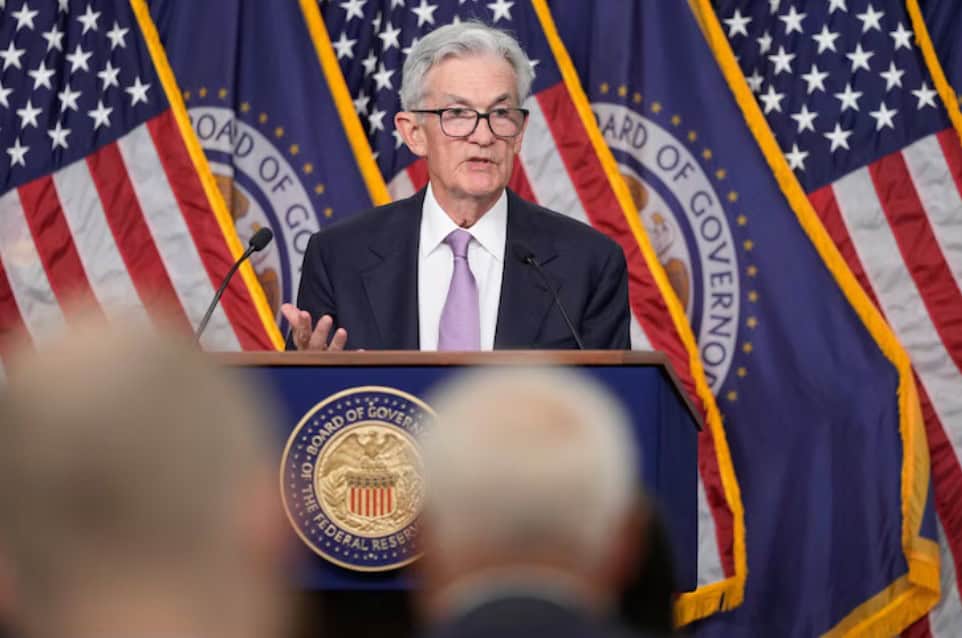
Stocks rallied to record highs this week in the aftermath of a jumbo-sized interest rate cut at the Federal Reserve, presenting investors with a key question: Where is the market headed from here?
Experts who spoke to ABC News voiced cautious optimism about the outlook for the stock market, since rate cuts typically boost economic performance and buoy corporate earnings.
They warned that stocks already stand at elevated prices after a year of strong gains, leaving the market vulnerable to a downturn if the economy continues to slow.
“We’re in for some volatility,” Steve Sosnick, chief strategist at Interactive Brokers, told ABC News. “It wouldn’t surprise me if the move higher is more of a grind than it is an escalator.”
On Thursday, the S&P 500 soared 1.7% and the Dow Industrial Average jumped 1.2%, catapulting both indexes to record highs one day after the Fed handed down a half-point interest rate cut.
Along with the rate cut, the central bank forecasted two quarter-point cuts over the remainder of this year and a series of cuts next year totaling one percentage point.
The banner trading session on Thursday took hold despite market fluctuations in the immediate hours following the rate cut on Wednesday afternoon, as Wall Street digested the central bank’s announcement. In early trading on Friday, markets appeared to resume that uneasy posture with a small move downward for each of the major indexes.
The topsy-turvy response owes in part to a run-up in stock prices that preceded the rate cut, experts said. Prior to the rate cut, the S&P 500 had already soared about 18% this year, in part due to anticipation of a lowering of rates.
Those priced-in expectations blunted some of the positive impact of rate cuts, experts said, while acknowledging that the move higher reflects a general preference for low rates on Wall Street.
“We finally got the rate cut that the market was expecting for months,” Callie Cox, chief market strategist at Ritholtz Wealth Management, told ABC News.
Stock market gains over the past year have relied mainly on large tech companies propelled by enthusiasm over artificial intelligence. Lower interest rates could broaden the market’s upswing to companies in other sectors of the economy, giving stocks room to rise even after months of strong performance, Cox said.
“Now that the Fed is lowering rates, you would think that some momentum would shift to some of those unloved areas of the bull market,” Cox added.
However, concerns about a slowdown in the labor market — and, by extension, a cooldown in the economy as a whole — have cast a shadow over the outlook for stocks, experts said.
A weaker-than-expected jobs report in each of the last two months has stoked concern among some economists. Meanwhile, the unemployment rate has ticked up this year from 3.7% to 4.2%.
Some observers also remain anxious about the prospects for inflation. While price increases have slowed dramatically, they’re still accelerating slightly faster than the Fed’s target of 2%.
“So long as the economy holds up and inflation doesn’t roar back to life, lower rates and strong earnings growth can continue to drive stocks higher over the long term,” Bret Kenwell, an investing analyst at eToro, said in a statement to ABC News.
Sosnick put it more bluntly. “It’s really hard to have good markets without a good economy. There are reasons to be concerned that something worse than a soft landing is on the horizon,” he said.
Something else looms on the horizon: the presidential election in November. Experts predicted that the election would drive some financial headlines and stoke uncertainty, but they downplayed its ultimate impact on market performance.
In an examination of market performance stretching back nearly 100 years, asset management firm T. Rowe Price found that the S&P 500 performs better than average in the months preceding a presidential election, and worse than average in the months following one.
“Correlations exist in varying degrees, but clients should focus on what ultimately matters over the longer term: the economy and business fundamentals,” the firm said in its August report.
Cox underscored the point. “Chances are any changes will be insignificant for your wealth-building in the long run,” she said.